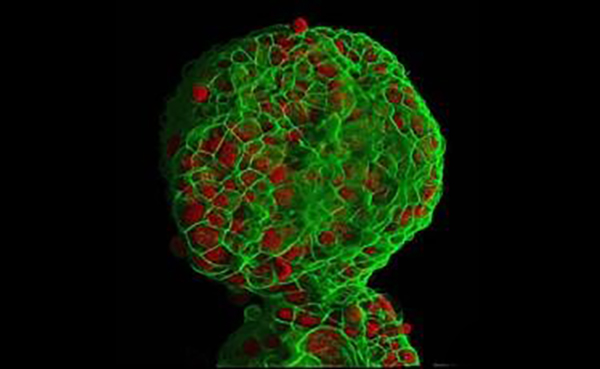To prevent the spread of breast cancer, it may help to limit dietary asparagine, an amino acid found in many foods of animal and plant origin—including, yes, asparagus. But since asparagine may be synthesized in the body, dietary restrictions may need to be accompanied by drugs that interfere with the metabolic pathways that give rise to the amino acid.
The link between asparagine and the spread of breast cancer was explored by a multicenter study that used in vitro and in vivo models of triple-negative breast cancer to expose metastatic drivers. In this study, the focus was on finding differences at the level of gene expression that could explain why some tumors are more given to metastasis than others.
Among the candidate metastatic drivers evaluated in the study, one stood out—the level of asparagine synthetase expression in a primary tumor. This finding, from mouse models, was confirmed by an examination of data from breast cancer patients.
Additional details appeared February 7 in Nature, in an article entitled “Asparagine Bioavailability Governs Metastasis in a Model of Breast Cancer.” The article describes how limiting asparagine in laboratory mice with breast cancer dramatically reduced the ability of the cancer to travel to distant sites in the body. If further research confirms these findings in human cells, limits on the asparagine consumption of cancer patients could reinforce existing therapies and help prevent the spread of breast cancer.
“Limiting asparagine by knockdown of asparagine synthetase, treatment with L-asparaginase, or dietary asparagine restriction reduces metastasis without affecting growth of the primary tumour, whereas increased dietary asparagine or enforced asparagine synthetase expression promotes metastatic progression,” wrote the article’s authors. “Altering asparagine availability in vitro strongly influences invasive potential, which is correlated with an effect on proteins that promote the epithelial-to-mesenchymal transition.”
“The study results are extremely suggestive that changes in diet might impact both how an individual responds to primary therapy and their chances of lethal disease spreading later in life,” said the study's senior author, Gregory J. Hannon, Ph.D., professor of cancer molecular biology and director of Cancer Research UK Cambridge Institute, University of Cambridge in England.
Investigators now are considering conducting an early-phase clinical trial in which healthy participants would consume a low-asparagine diet. If the diet results in decreased levels of asparagine, the next scientific step would involve a clinical trial with cancer patients. That trial likely would employ dietary restrictions as well as chemotherapy and immunotherapy.
Studying the effects of asparagine also could alter treatments for other types of cancer, investigators say.
“Our study adds to a growing body of evidence that suggests diet can influence the course of the disease,” noted Simon Knott, Ph.D., associate director of the Center for Bioinformatics and Functional Genomics at Cedars-Sinai and one of two first authors of the study.
Foods rich in asparagine include dairy, whey, beef, poultry, eggs, fish, seafood, asparagus, potatoes, legumes, nuts, seeds, soy, and whole grains. Foods low in asparagine include most fruits and vegetables.


